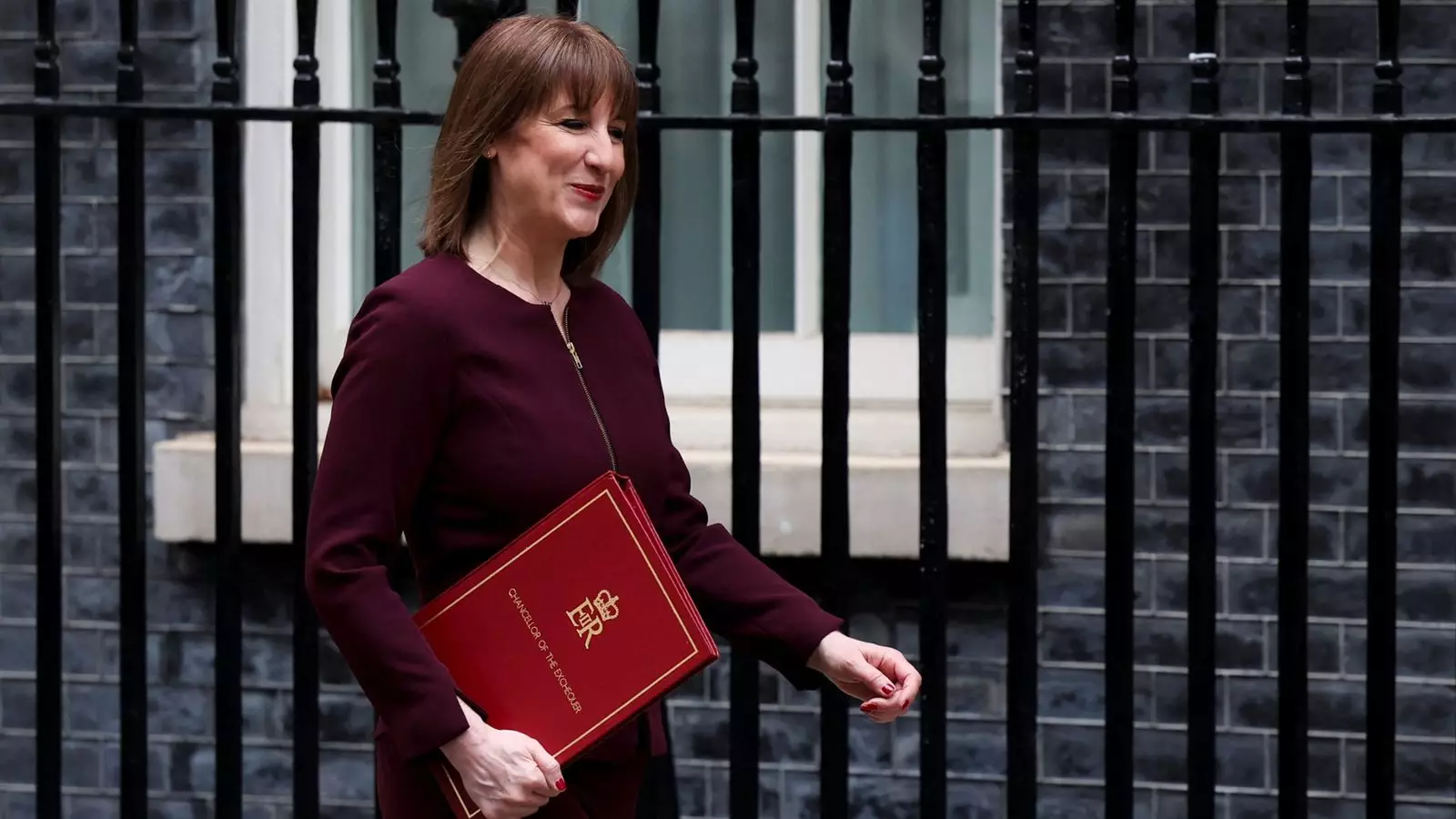In an unexpected twist reflecting the harsh political and economic climate, the Office for Budget Responsibility (OBR) has slashed the UK’s growth forecast for 2025 from 2% to a meager 1%. This announcement, delivered by Chancellor Rachel Reeves, casts a long shadow over future economic projections and raises significant alarms about the government’s fiscal direction. While the OBR’s optimistic annual revisions for growth in subsequent years might seem like a silver lining, they pale in comparison to the stark reality that current conditions are anything but promising. For an administration that prides itself on economic stewardship, this decline is particularly troubling and raises critical questions about the underlying strategies in place, or lack thereof.
Chancellor’s Mixed Signals: Optimism in Pessimism
Chancellor Reeves expressed dissatisfaction with the current growth numbers, stating that the economy faces an uphill battle requiring “long-term decisions” and a series of reforms poised to bear fruit in due time. Such rhetoric evokes memories of politicians before her, who weave hopeful narratives into otherwise grim forecasts, suggesting that optimism is too often laced with naive idealism. While it’s commendable to maintain a forward-looking perspective, it becomes essential for the Chancellor to ground her optimism in tangible outcomes rather than abstract aspirations. Merely naming policy adjustments, such as new housing targets and changes to the National Planning Policy Framework, cannot mask that the economy’s trajectory is still sadly unsteady.
The Shadow of Austerity: Pensions and Welfare Cuts
Accompanying the reassessment of growth projections comes the chilling news of welfare budget cuts that the Labour government hopes will save £4.8 billion. The removal of health support within universal credit will impact countless families who rely on these crucial safety nets. In a bid to balance the books, the government walks a perilous line—austerity measures that impact the most vulnerable among us can hardly be termed a sound economic strategy. While Reeves touts a national wealth fund and other reforms as parts of a “serious plan” for growth, they ring hollow in the ears of those who will shoulder the burden of enforced change.
Tax Evasion and the Illusion of Financial Precision
Moreover, the promise of raising an additional £1 billion through stricter measures against tax evasion sounds largely ambiguous. It invokes skepticism rather than confidence, suggesting that the government may be desperate to inflate revenue predictions without clear pathways to achieving these ends. Any administration striving for credibility must demonstrate the capability to curb tax evasion effectively and ensure that all taxpayers bear their fair share. The absence of immediate tax rises may give the illusion of fortunate restraint, yet it workflows neatly into an economic philosophy that frequently prioritizes optics over substantive action.
Defense Spending: A Double-Edged Sword
Interestingly, while the government’s focus on welfare cuts is unsettling, the allocation of an additional £2.2 billion to defense highlights the perplexing nature of today’s priorities. In a country grappling with rising service costs, investing in military capability instead of strengthening social programs raises ethical questions. It reflects an administration that seems willing to invest in its geopolitical influence while neglecting the foundational welfare of its citizens—a concerning indication of misplaced priorities in times of fiscal scrutiny.
Civil Servants: The Unkindest Cut?
Finally, the introduced scheme for voluntary redundancies among civil servants might be hailed as a pathway to a leaner government, but it further emphasizes the insecurity many government employees face. The proclaimed savings of £3.5 billion by 2029-30 could exert undue stress on the remaining workforce and degrade the quality of public service. Lean governance is one thing; sacrificing moral responsibility for a budgetary target is quite another.
In a climate of economic downturn, the government’s response to the OBR’s revised projections and subsequent measures illustrates a commitment to a playbook that preserves the status quo rather than daring to implement innovative and equitable solutions. As a center-left advocate, one must wonder if the current administration is genuinely committed to a holistic approach that balances fiscal responsibility with social equity, or if it merely offers us a carefully choreographed dance around a deteriorating economy. The time for bold, transformative action is now.

Leave a Reply